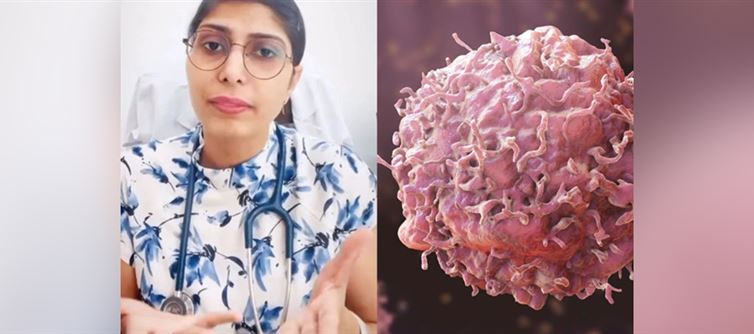
Cancer-causing compounds are found in items like scented candles, perfumes, and meals prepared in used oil, particularly from dining establishments, she noted. These commonplace items, which are now found in many homes, are exposing people to dangerous compounds without their knowledge.
Lifestyle Choices Behind Rise In cancer Cases
According to Dr. Sehrawat, people are unwittingly exposing themselves to carcinogens these days. According to her, eating greasy, reheated food and using specific household objects raise the risk of developing cancer in the long run. For many people, these exposures are a normal part of life rather than an isolated incident.
She also emphasized that harm accumulates over time and the body doesn't react right away. Because of this, avoiding these goods and implementing minor lifestyle adjustments can significantly lower the risk of developing cancer.
Early Screening Is Crucial After 40
In addition to reducing exposure to toxic compounds, Dr. Sehrawat emphasized the significance of early identification. According to her, early cancer detection is now feasible due to increased public awareness and better medical testing, and it should become a habit, particularly beyond the age of 40.
She advised women to perform daily breast self-examinations while taking a bath. After the age of 40, mammograms should be performed every two years, or sooner if breast cancer runs in the family. Screening for cervical cancer should start at age 40 and be done every three years after that. She also emphasized the importance of HPV vaccination for girls between the ages of 9 and 26.
After the age of 40, she recommended that males receive blood tests for tumor markers including CA 125, AFP, and CA 19-9, which aid in the early detection of diseases like colon or pancreatic cancer.
Dr. Sehrawat concluded her talk by emphasizing that prevention is more important than treatment in maintaining a cancer-free lifestyle. The key to lowering the risk of cancer is routine screening and lifestyle changes. These actions become even more crucial as people age in order to maintain good health and prevent sickness.




 click and follow Indiaherald WhatsApp channel
click and follow Indiaherald WhatsApp channel